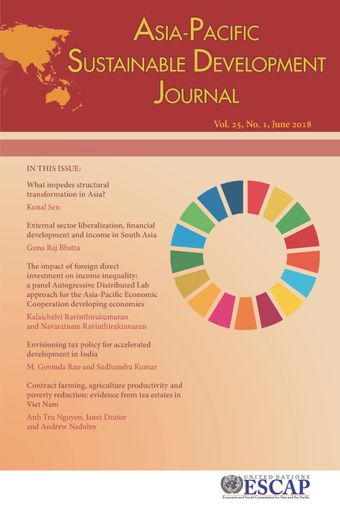-
The impact of foreign direct investment on income inequality: a panel Autogressive Distributed Lag approach for the Asia-Pacific Economic Cooperation developing economies
- Source: Asia-Pacific Sustainable Development Journal, Volume 25, Issue 1, Dec 2018, p. 57 - 84
-
- 19 Dec 2018
Abstract
In the present paper, the effect of foreign direct investment (FDI) inflows on income inequality in Asia-Pacific Economic Cooperation (APEC) economies is investigated by using annual data for the period 1990–2015. The variables used are the Gini coefficient, FDI inflows, gross domestic product (GDP) per capita, trade openness and human capital. Also, panel Autoregressive Distributed Lag (ARDL) and panel heterogeneous non-causality tests are used in this study. The panel ARDL results suggest that, in the long run, FDI inflows decrease income inequality. This supports the argument that encouraging FDI inflows does not harm the distribution of income in APEC economies. The results also confirm that GDP per capita and trade openness help reduce income inequality while human capital widens income inequality. The results from this study suggest that APEC authorities could implement sound policies to attract more FDI, as evidence indicates that those inflows would narrow income inequality in APEC economies.





